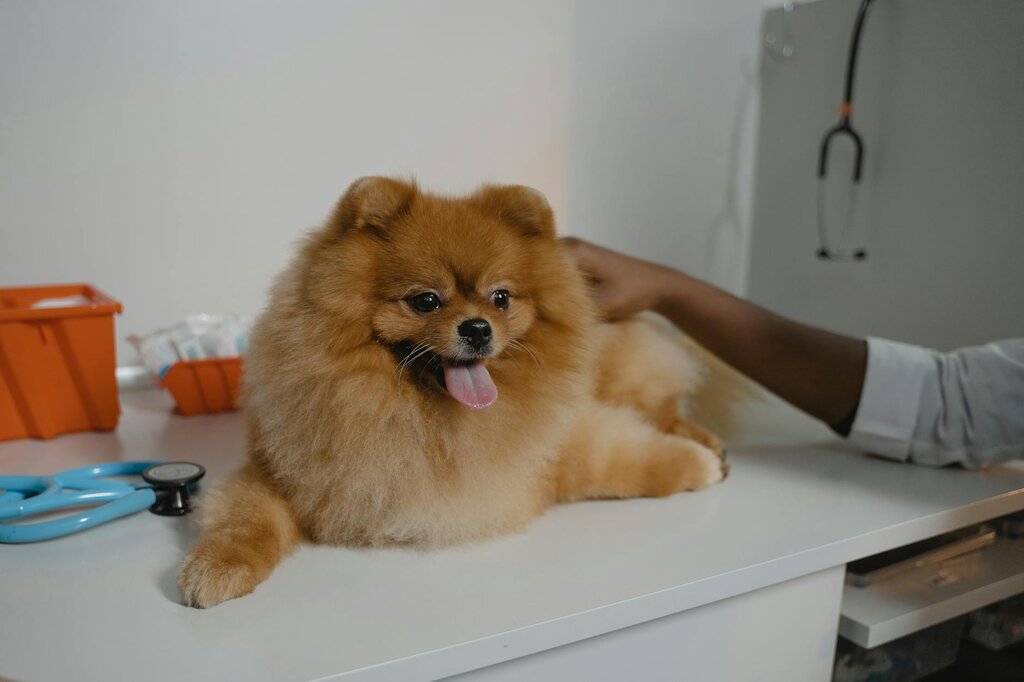Last Updated: 06/06/2025
Pancreatitis in Dogs
Has your dog been diagnosed with pancreatitis? Find out symptoms and solutions.
Author: Dr Teagan Lever BVSc (Hons)
Reading Time: 18 minutes - medium read
Pancreatitis, inflammation of the pancreas, is a relatively common cause of gastrointestinal illness in dogs. This condition is extremely painful and can cause serious illness, potentially becoming life-threatening. As a dog parent, it is vital to be aware of the symptoms, as they may not be obvious at first. In most cases, with prompt diagnosis and treatment, pancreatitis in dogs can be successfully managed.
What is pancreatitis?

Pancreatitis is a common issue seen in our canine friends. The medical definition of pancreatitis is inflammation of the pancreas. One of the functions of the pancreas is to secrete enzymes for digestion, but when it becomes inflamed these enzymes may not reach the gastrointestinal tract and can cause the pancreas to 'digest itself'. This is extremely painful and can cause serious illness for your pup.
Pancreatitis in dogs is a condition that all pet parents should be informed about, due to its common occurrence in dogs and the potential for it to become life-threatening. As a dog parent, it is vital you make yourself aware of the symptoms - as they may not be obvious at first.
What causes pancreatitis in dogs?
Pancreatitis is often caused by eating an overly fatty meal. This is most commonly seen after a well-meaning owner feeds their dog leftovers, however some dogs may find their way to a fatty meal after getting into garbage.
Which foods can cause pancreatitis? The usual culprits include barbeque meat, cheese, leftover fatty offcuts, or marrow bones. The high fat content of these foods is simply too much for the pancreas to handle and causes it to go into overdrive. The pancreas starts to produce excessive digestive enzymes and becomes painfully inflamed.
Unsurprisingly, pancreatitis is often associated with family events or 'feast' holidays. For instance, every year on Christmas Day, veterinarians see huge spikes in pancreatitis patients. Just because your body can handle a collosal mountain of ham and retire into a food coma, doesn't mean your dog's can!
However, some dogs can still develop pancreatitis in the abscence of a fatty meal. Risk factors that can make your dog more likely to develop pancreatitis include obesity, endocrine disorders such as hypothyroidism, and some medications. Many breeds are also prone to pancreatitis, including Schnauzers, Poodles, and Cocker Spaniels. Females and overweight dogs are also at a higher risk.
Symptoms of pancreatitis in dogs

Common signs of pancreatitis in dogs include:
- Hunched posture
- Sore abdomen
- Loss of appetite
- Vomiting
- Lethargy
- Restlessness
- Diarrhoea
Did you know: Pancreatitis can cause issues for life. Acute pancreatitis doesn't always clear up once the initial insult has been treated. Unfortunately most dogs will suffer from a sensitive pancreas for the rest of their lives, and may need lifelong maintenance on a low-fat diet.
How is pancreatitis diagnosed in dogs?
Your vet will be suspicious of pancreatitis if your dog is showing some of the above symptoms along with pain in the anterior abdomen. A blood test is needed to confirm elevated levels of pancreatic enzymes in your pet's blood. Other diagnostic tests that may be indicated include an abdominal ultrasound or x-rays, to rule out conditions such as intestinal obstruction.
Treatment of pancreatitis in dogs

Pancreatitis always requires medical treatment at your vet due to the potential for it to become life-threatening. And due to the severe pain endured during pancreatitis, withholding medical care can be seen as a welfare issue.
At a minimum, treatment usually involves a hospital stay with pain relief, anti-nausea medication and an intravenous drip. Most vets also choose to administer antibiotics to reduce the risk of infection in the inflamed pancreatic tissue. While your pet will likely have no food for a day or so, a prescription diet will probably be dispensed for ongoing nutritional management.
Nutrition for dogs with pancreatitis
Usually, dogs in an acute pancreatitis event will have food withheld until their nausea is under control. Once they are able to stomach food again, they must be fed a fat restricted, highly digestible diet. Ideally this will be a veterinary therapeutic wet food diet which has been designed for this specific purpose.
Once recovered and back home, your veterinarian may recommend to continue feeding a low fat, veterinary therapeutic diet long term to reduce the risk of pancreatitis recurring. It's important to always check with your vet prior to making changes to your pet's diet if they harecommended a therapeutic food.
Vet diets for dogs with pancreatitis
Treats for dogs with pancreatitis
We've discussed food, but what about treats that are safe for pancreatitis? While most commercially available treats are considered too rich for a sensitive tummy, fortunately there are some options available. Your dog certainly doesn't have to miss out on tasty treats just because of their history of pancreatitis.
Small pieces of easy to digest fruits and vegetables such as apple, strawberries, green beans and peas may be suitable options. You can also reserve portions of your dog's dry food to give as treats during the day. When considering commercially available treats, look for products which are low in fat, particularly animal fats. Dried sweet potato slices and veggie ears can be good options, but remember it's essential to check their suitability for your dog with your vet before feeding any new treat.
While pancreatitis can't always be prevented, taking steps such as avoiding feeding high fat foods, particularly human leftovers, can reduce the risk. The right nutrition will also play a pivotal role in recovery from a bout of pancreatitis, as well as in preventing recurrence in the long term.
Further Reading
Want to read more? Check out our other articles:
Common causes of diarrhoea in dogs
The benefits and risks of raw diets
History
Our experts continually monitor the health and wellness space and we update our articles when new information becomes available.
Thu Feb 27 2025
Edited by Dr Teagan Lever BVSc (Hons)Dr Carla Paszkowski BVSc (Hons)
Veterinarian
Dr. Carla graduated from the University of Queensland in 2013 with a Bachelor of Veterinary Science and worked for a number of years in small animal clinics across South East Queensland. While Carla enjoys most facets of clinical veterinary work, she holds a special passion for feline medicine, pocket pets, and nutrition.

